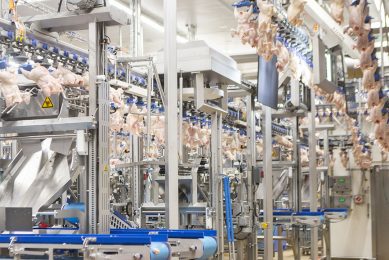CPF grows Asian market share
Charoen Pokphand Foods (CPF) is expanding its business focus on brand building, packaging and logistics with the aim of becoming southern Asia’s biggest food producer.
Thailand’s CPF is also mapping out plans to set up its own distribution centre and logistics system, designed to support its expansion as well as meeting demand from rapidly growing regional trade.
“Distribution and logistics are the most powerful factors controlling business,” says CPF president and CEO Adirek Sripratak, adding that the company has recruited about 10 logistics experts, including one based in Hong Kong.
The plan aimed at ensuring sustainable growth of an average 10% per year over the next 5 years, which will achieve Bt200 bln in annual sales revenue, Sripratak says. He adds that the brand-building strategy aims to direct the company towards global recognition and, eventually, to settle on a “one company, one logo” policy. “We plan to reduce exports of fresh meat and to focus on our brand and finished products,” Sripratak says.
CPF has already achieved the “third step” in food industry development, involving a value chain beginning with breeding and animal feed, owning farms as a medium step, and making processed foods downstream.
In addition, CPF has expanded not only into neighboring countries such as Laos, Cambodia, Vietnam, Burma, Malaysia and Indonesia, but also into other potential Asian markets like India, Turkey and Russia, says Sripratak.
Sripratak says the food industry had reached a turning point because grains like maize are being diverted for use in ethanol manufacturing.
Demand for maize to support the ethanol industry in the US has increased from 10% in 2008 to 20% in 2009, and major maize importers such as Japan and Vietnam are facing price increases from Bt6 per kg in 2008 to Bt8 in 2009. In Thailand, maize prices are expected to rise by 15% this year to Bt6 50 per kg.
“It is forecast that the cost of producing meat will increase because the feed meal industry will face a shortage of grain and this will prompt tougher competition on the world market,” Sripratak said.













